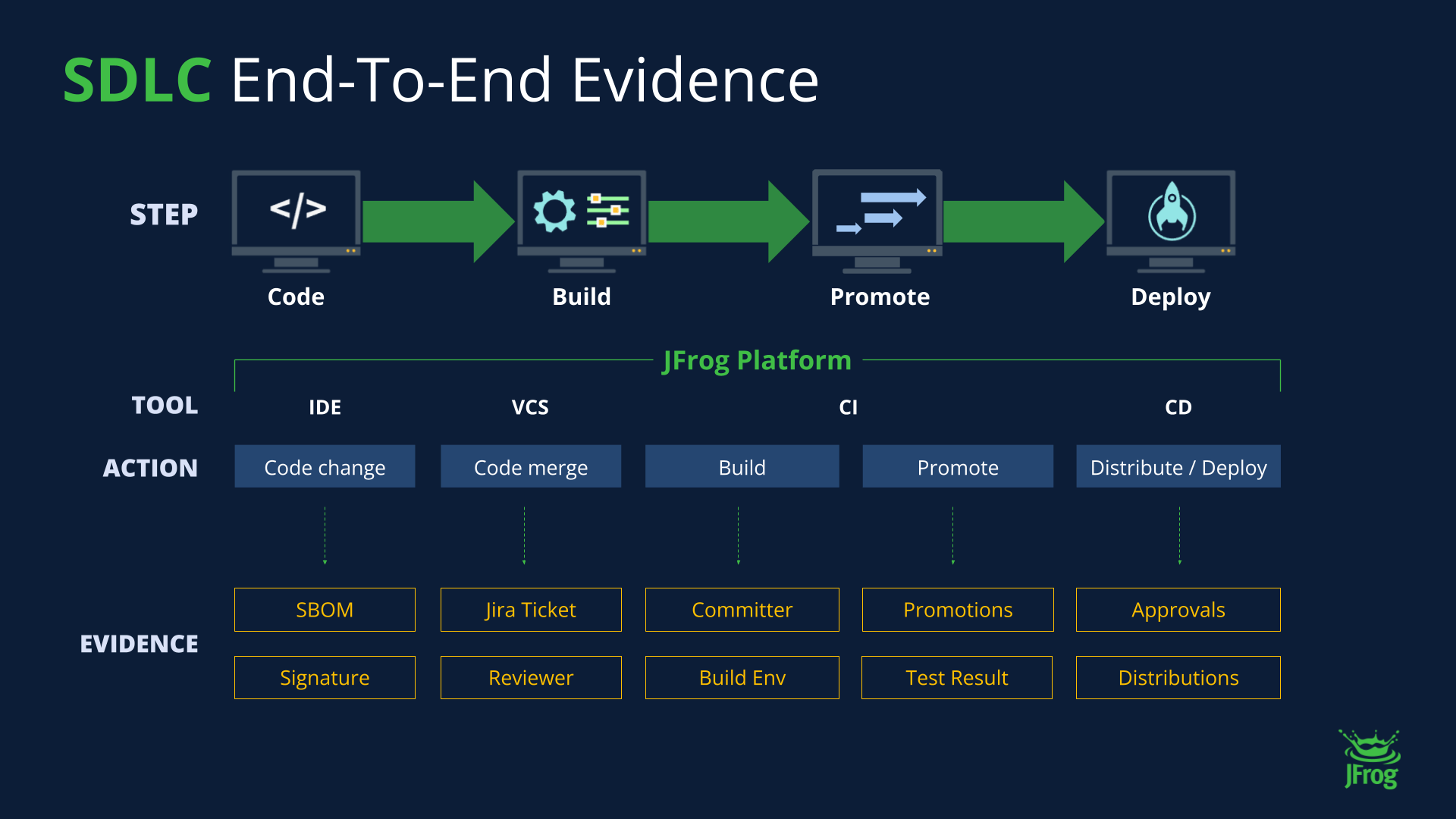Definition
DevGovOps is a framework that integrates governance, risk, and compliance (GRC) directly into the DevOps lifecycle and security practices. By automating governance, policies and controls, DevGovOps ensures that software delivery remains both rapid and compliant without trade-offs. This approach shifts traditional governance from a post-development manual checkpoint to a continuous, automated process that bolsters business resilience.
Overview of DevGovOps
Integrating Governance into DevOps and Security
Integrating governance into DevOps and Security addresses the need to balance speed and compliance in modern software development. While DevOps focuses on accelerating the software delivery process, DevGovOps ensures that this velocity does not come at the expense of regulatory, security, and operational standards.
DevGovOps is a combination of Development, Governance, and Operations. It is an operational model that embeds automated governance and compliance controls into the continuous integration/continuous delivery (CI/CD) pipeline. This integration ensures that software artifacts and processes adhere to predefined policies from development to deployment.
The importance of governance in DevOps
Infusing governance into DevOps is crucial, because it establishes the guardrails and policies for software development and delivery. Without it, the speed of DevOps can introduce unmanaged risks, such as security vulnerabilities, license compliance issues, and non-compliance with industry standards. Effective governance ensures that these risks are mitigated continuously, not as a separate, reactive phase.
Key principles of integrating governance
Integrating governance policies into the DevOps workflow is guided by several core principles. These principles aim to make both governance and compliance a natural,integrated part of the development process rather than a final, burdensome step.
- Automation over manual processes. Automating governance checks (e.g., security scanning, license verification) within the CI/CD pipeline ensures consistency and reduces human error. Manual reviews are slow, error-prone and cannot keep pace with the velocity of DevOps-enabled pipelines.
- Embedding compliance early and continuously in the pipeline. Similar to the principle of shift left in DevSecOps, this involves moving governance and security checks to the earliest possible stages of the Software Development Lifecycle (SDLC). This allows teams to identify and remediate issues when they are least costly to fix.
- Creating transparency for both technical and governance stakeholders. DevGovOps provides a unified, auditable view of compliance status and security posture. This transparency enables technical teams to see how their changes impact compliance, while providing GRC stakeholders with the evidence they need to conduct trusted audits
What are the challenges of DevGovOps?
Implementing DevGovOps is not without its challenges. Organizations often face hurdles related to technology, process, and culture. Overcoming these challenges is essential for a successful transition.
Lack of unification across the software supply chain
Many organizations use a disparate collection of tools for different stages of the software supply chain. This fragmentation leads to a lack of unified reporting and data, making it difficult to maintain a single source of truth to monitor the status of compliance efforts.
The pressure to ship with high velocity
A core tenet of DevOps is speed. The pressure of engineering teams to release new features and updates fast often leads teams to deprioritize or bypass quality and regulatory controls. This trade-off is risky, creating gaps that can lead to security incidents and compliance failures that require costly remediation later on.
A lack of understanding of what compliance entails
Technical teams may lack a clear understanding of regulatory requirements, while governance teams may not understand the technical implications of their policies. This knowledge gap can lead to the creation of unworkable policies or the misinterpretation of evidence, slowing down the entire process.
Friction between technical and GRC teams
Traditional organizational structures often create a divide between development teams and GRC teams. Developers prioritize speed and functionality, while GRC teams prioritize control and adherence to policy. This difference in priorities can lead to friction, communication breakdowns, and process delays.
What Components Ensure Successful DevGovOps?
DevGovOps is built upon a combination of key components that work together to create a streamlined, compliant, and efficient software delivery process.
Governance
Governance in a DevGovOps context is the ability to establish and enforce the rules, policies, and frameworks that dictate an organization’s approach to risk management, regulatory compliance, and overall business resilience. This includes defining security policies, license requirements, and operational standards.
DevOps
DevOps provides the cultural and procedural foundation for rapid software delivery. It emphasizes automation, collaboration, and continuous feedback loops, which are leveraged by DevGovOps to embed governance controls directly into the CI/CD pipeline.
GRC (Governance, Risk, and Compliance)
GRC is the umbrella term for the processes that ensure an organization meets its objectives while managing risk and complying with regulations. DevGovOps automates these GRC functions, moving them from a separate department’s responsibility to an integrated part of the software delivery process.
Automated governance
Automated governance is the practice of using tools and policy engines to continuously check for compliance of defined rules or processes during every stage of the software lifecycle. This includes vulnerability scans, license checks, code quality scans, code reviews, approval signoffs, and separation of duties (SoD),ensuring that software artifacts meet policy requirements before they are promoted to production.
The Role of Software Governance in DevOps
Software governance plays a crucial role in enabling DevOps teams to operate at scale while maintaining control. It provides the necessary structure to manage risks without stifling innovation.
How software governance enhances DevOps practices
Software governance enhances DevOps practices by providing clear policies and a framework for accountability. By defining who is responsible for what, and what constitutes an acceptable risk, governance ensures that development and operations teams have the guidelines they need to work efficiently, effectively and securely together.
Balancing compliance and innovation
DevGovOps provides a mechanism to balance compliance and innovation. By automating compliance policies early in the development process and making them a core part of the CI/CD pipeline, teams can innovate quickly, knowing that governance is being continuously enforced from the start, and not a blocker or bottleneck in later development stages.
Examples of effective governance frameworks
Effective governance frameworks in DevGovOps often include the use of Policy-as-Code where compliance rules are defined in machine-readable code, allowing them to be version-controlled and automated. Examples include frameworks for continuous auditing, automated vulnerability scanning, and evidence-based promotion for regulatory compliance. This also aids in having a trusted, golden copy of all artifacts and images.
How to Implement Continuous Governance
Implementing continuous governance requires a strategic approach that integrates compliance into every phase of the software delivery pipeline.
Steps to automate governance in DevOps workflows
- Identify compliance requirements early in the project lifecycle. Define the regulatory, security, and operational standards that the new software must meet.
- Map requirements to automated checks in the CI/CD pipeline. For each requirement, determine how it can be automatically verified, such as using a vulnerability scanner to check for CVEs.
- Integrate evidence collection into the build process. Deploy tools that can generate a Software Bill of Materials (SBOM), audit logs, and other artifacts that serve as evidence of completed processes in order to prove compliance.
Tools and technologies for continuous governance
Continuous governance relies on a suite of tools that automate checks and provide visibility. These include Policy-as-Code frameworks, artifact repositories that provide a single source of truth for all components and associated metadata, and compliance dashboards that give stakeholders a real-time view of governance status.
Monitoring and measuring governance effectiveness
Monitoring and measurement are essential for proving the value of a DevGovOps framework. This involves tracking key metrics, such as:
- Pass/fail rates of automated compliance checks.
- Time-to-remediate identified vulnerabilities.
- Completeness and accuracy of evidence collected for audits.
How to Influence Teams to Embrace DevGovOps
The success of DevGovOps depends on a significant cultural shift. It requires changing the mindset from “compliance is someone else’s job” to “compliance is a shared responsibility.”
Influencing organizational culture for DevGovOps
Promoting a DevGovOps culture means fostering cross-functional collaboration. Development, security, and GRC teams must work together from the project’s inception, sharing goals and understanding each other’s priorities. This breaks down silos and ensures a unified approach to security and compliance.
Training and empowering teams
Training is crucial for empowering teams to embrace DevGovOps. Technical teams need to understand the ‘why’ behind compliance policies, and GRC teams need to understand the technical realities of software delivery. Providing teams with the right tools and knowledge enables them to take ownership of governance, and to enable culture and mindset change that is necessary.
What are the Benefits of DevGovOps?
DevGovOps offers numerous benefits, providing a clear return on investment by improving security, enhancing collaboration, and accelerating innovation.
Improved risk management
By continuously and automatically checking for vulnerabilities and compliance issues, DevGovOps proactively manages risk throughout the SDLC. This shifts the focus from reactive firefighting to proactive prevention, significantly reducing the attack surface.
Enhanced collaboration between teams
DevGovOps facilitates closer collaboration between developers, security teams, and GRC professionals. By operating from a single source of truth that drives automation, it removes the need for manual, high-friction handoffs, and creates a more cohesive and efficient workflow.
Fostering innovation while ensuring compliance
By making governance an automated part of the pipeline, DevGovOps allows teams to innovate at high velocity. Developers can build and release new features with confidence, knowing that the system will automatically enforce all necessary security and compliance controls. In summary, you can mitigate risk, reduce cost, and drive operational efficiency.
Improved business resilience
DevGovOps helps teams enhance business resilience, maintaining continuous operations and having the ability to adapt to new business needs, market trends, and regulatory concerns. With foundational governance practices in place, businesses have greater agility, which can be a differentiating advantage in today’s highly competitive business environment.
The Future of DevGovOps
Historically, the rapid adoption of new technology leads to new legal and ethical frameworks and regulations, as we’ve seen with the Internet and with the smartphone. Today, the pace of innovation remains unrelenting with generative AI, and the expected rise of agentic AI. We can expect history to repeat itself, with regulators and governments proliferating new regulations and frameworks that businesses must abide by.
DevGovOps will continue to remain a core, foundational strategy to future-proof a business. By automating compliance and fostering collaboration between GRC, legal, security, and development teams, DevGovOps gives businesses the ability to adapt to new technologies and regulations without sacrificing innovation and time to market. A proactive DevGovOps approach ensures continuity and governance over innovation, helping businesses navigate a complex, unpredictable landscape.
How JFrog Supports DevGovOps
The JFrog Platform provides the unified, end-to-end control needed for comprehensive DevGovOps support. It enforces your GRC policies with precision, providing continuous governance while preventing non-compliant or vulnerable components from ever entering the software supply chain. The robust metadata and traceability features also provide the detailed software attestation necessary for meeting regulatory requirements and proving the integrity of your software.
JFrog helps manage DevGovOps requirements across the Software Supply Chain
JFrog’s Evidence Collection collects signed evidence from across the SDLC, with integrations with commonly used tools that can seamlessly generate a comprehensive SDLC audit trail. JFrog Xray generates a detailed software bill of materials (SBOM) as well as reports on vulnerabilities, license compliance status, and operational risks, offering clear, actionable insights for security teams and auditors to understand the security posture of their software applications. This ensures adherence to open-source license obligations and internal security policies. JFrog AppTrust is the industry’s first comprehensive solution that consolidates security, governance and compliance for exceptional reliability, trust and operational efficiency.
Explore how JFrog can enhance your DevGovOps initiatives, by taking a virtual tour, scheduling an AppTrust demo, or starting a free trial at your convenience.







